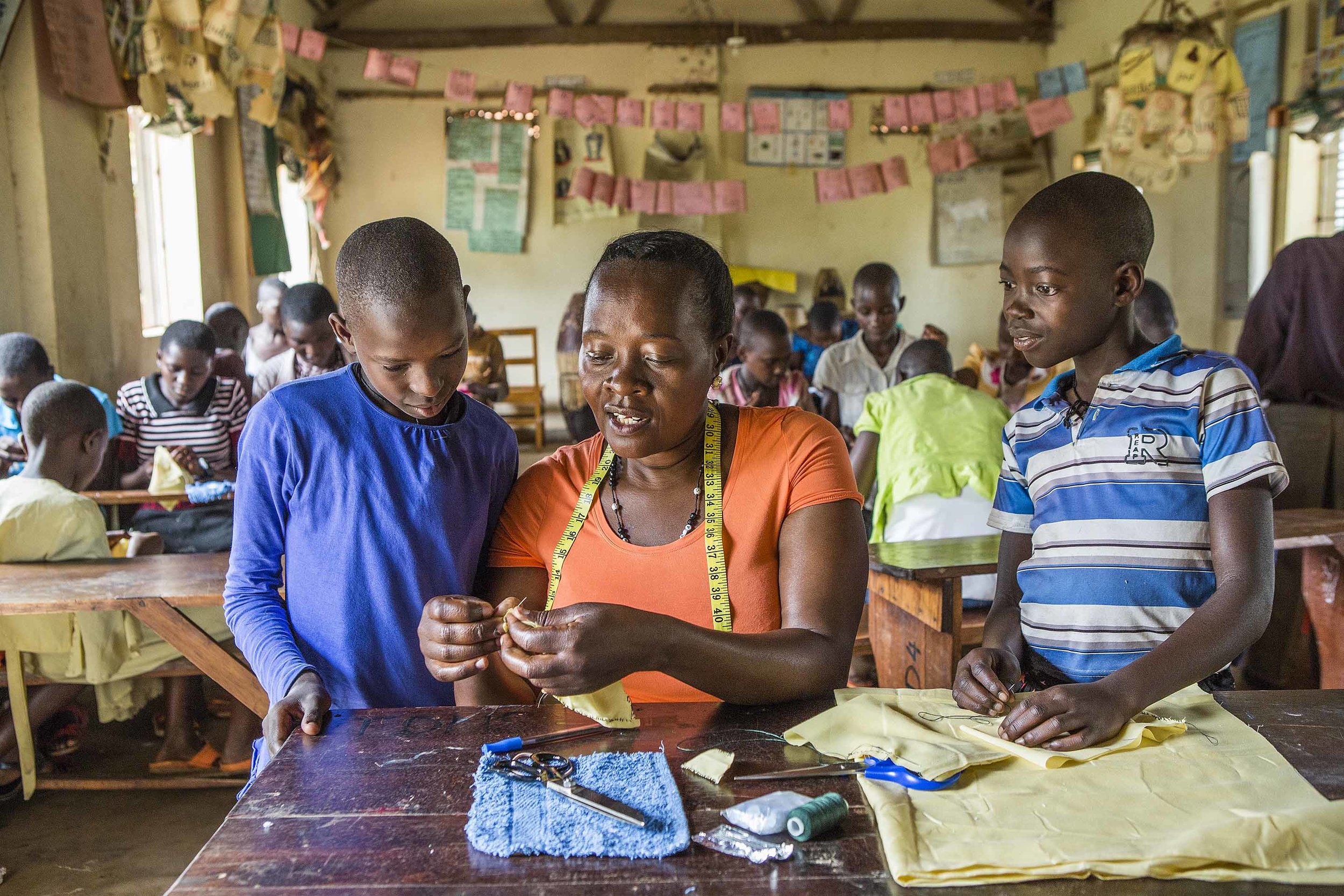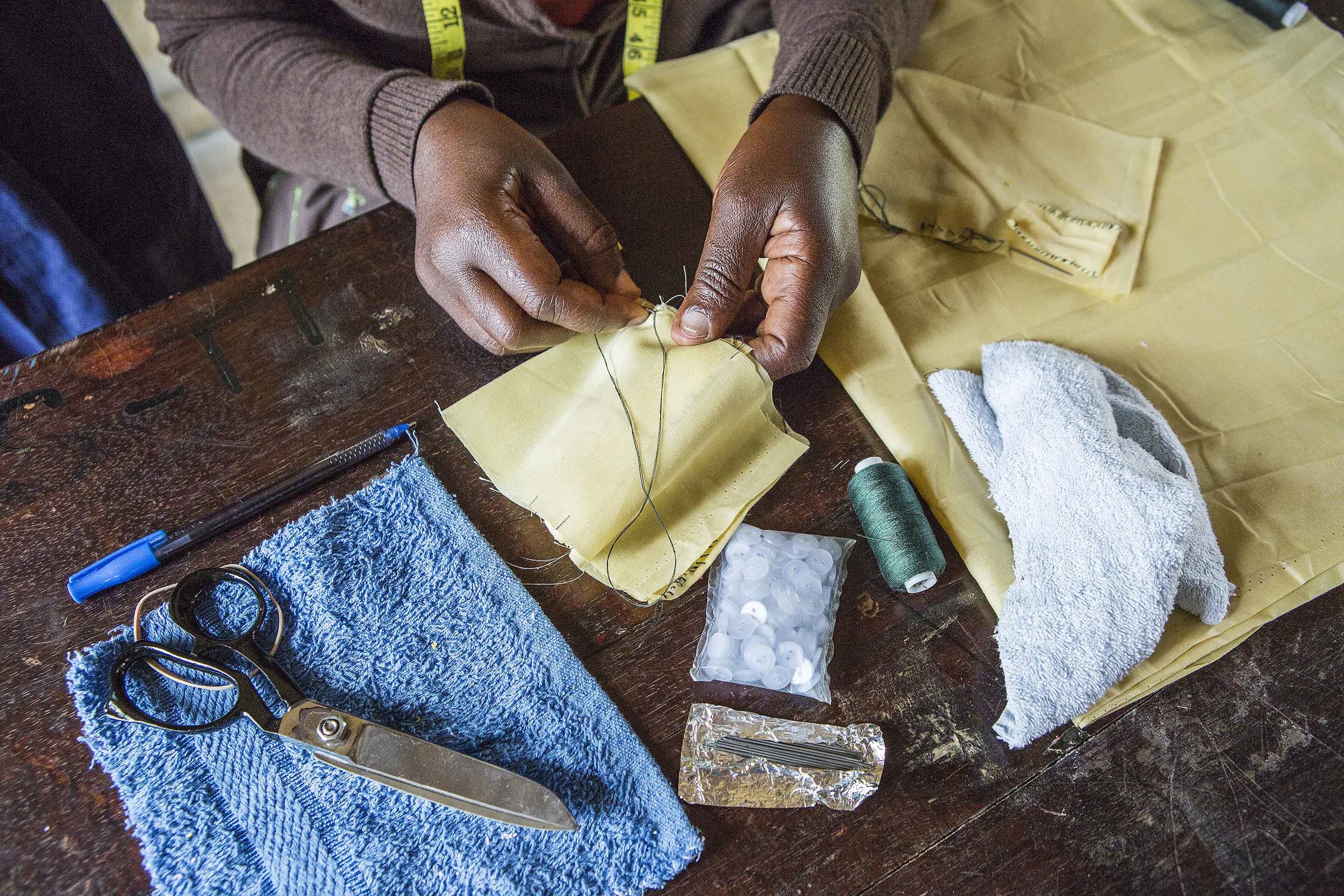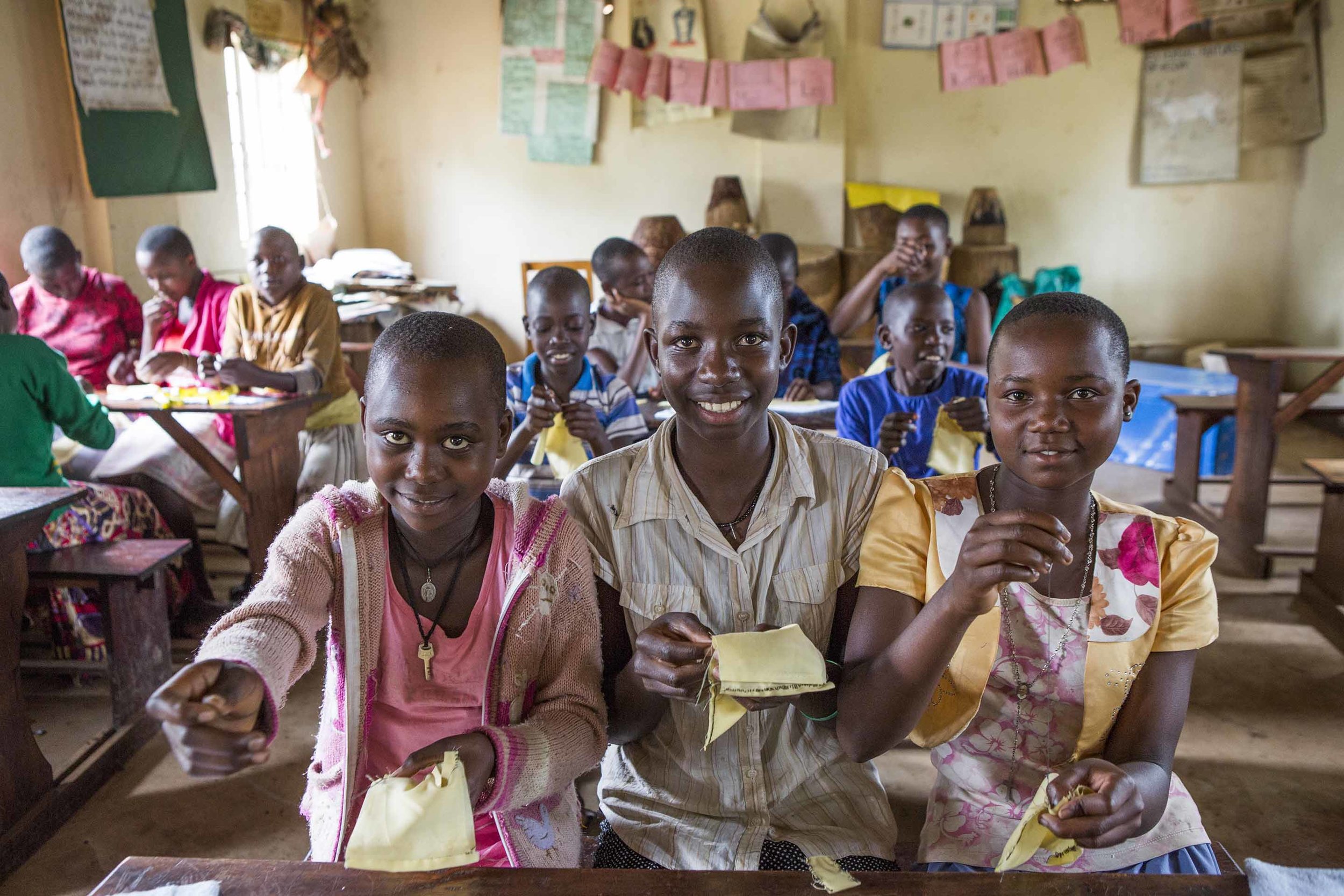According to UNICEF one in ten menstruating girls skip school for 4 to 5 days out of every 28 day cycle or drops out completely. That degree of absenteeism means losing 13 learning days 2 weeks, or 104 hours of school every term. About 23% of adolescents between ages of 12-18 drop out after they begin menstruating. A study carried out by the Netherlands Development Association in seven districts in Uganda revealed that girls miss 10% of school days due to menstruation. About one-third of girls drop out of school between the ages of 10 - 14.
In a survey completed by Brick by Brick Uganda in 2012 among 139 girls in three Universal Primary Education (UPE) schools in the Rakai District, 78% reported using dirty old clothes or rags during menstruation. 88% said that they would not purchase Afripads (a locally manufactured hygiene product) at a cost of 12,000 UGX ($3.63 USD), 92% said they would be interested in making their own reusable pads at a cost of 2500 UGX ($0.76 USD). 34% reported missing days of school due to their menstrual periods at an average of 3.3 days per month. 23% told us that menses negatively affected their studies. We found profound lack of knowledge in basic reproductive health, with 96% of the respondents reporting they were eager to learn more.
In response to these findings, Brick by Brick Uganda launched the My Pads Program, an 9-week co-educational after school program focusing on reproductive and sexual health, gender equality, and the promotion of healthy life choices. This program culminates in the fabrication by the students of a set of four reusable menstrual pads. To date this program has been implemented for 5000 students throughout Uganda. In 2015, we expanded this program to include a Training of Trainers component.
In 2016, we were awarded a US State Department funded DREAMS Program Innovation Challenge Grant to expand the My Pads Program to sixteen secondary schools in the Rakai and Kyotera Districts of Uganda serving 2400 young women. This program included the renovation of rain water harvesting systems and changing rooms to ensure access to menstrual hygiene facilities for all of our students. With the support of the DREAMS Program we reached 3100 adolescent girls and young women with our educational sessions. In sixteen secondary schools, rainwater harvesting systems have been renovated and gender sensitive changing rooms built.
In 2020, in the face of the Covid pandemic we expanded this innovative program to reach out of school girls and boys in the poorest of our communities. In addition to our educational program, we link these young people to adolescent-friendly health services, we have established through the Grand Challenges Canada, Saving Brains Program.




